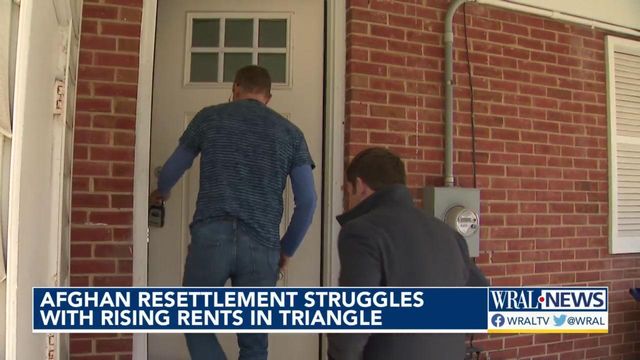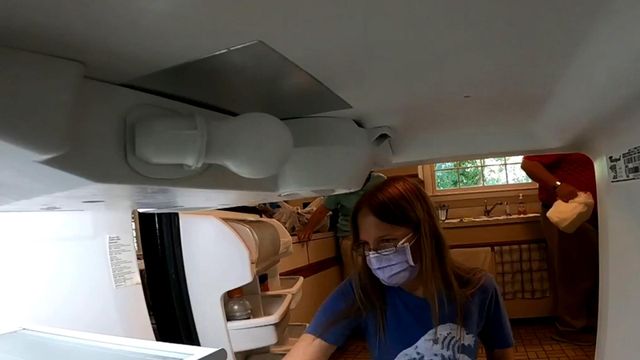Rising Triangle rents put new burden on Afghan refugees
The resettlement of hundreds of Afghan families who escaped the Taliban takeover of their country is hitting a snag due to a lack of affordable housing in the Triangle.
The North Carolina Department of Health and Human Services tells WRAL News that 1,174 Afghans have arrived here since the evacuation when the U.S. military ended its longest war in August. North Carolina expects to welcome a total of 1,549 by mid-February. That’s when the federal government hopes to clear Afghans from camps and military bases.
“They come from different walks of life. Some of them were interpreters. Some of them were officers with the U.S. Army,” said U.S. Committee for Refugees and Immigrants (USCRI) NC field office director Omer Omer. “Many of them have been here on bases, and to clear the bases, large numbers have been coming our way with very little notice.”
USCRI places refugees in temporary housing when they arrive in the Triangle. WRAL News followed that process as volunteers with the nonprofit Welcome House Raleigh worked quickly to set up homes and apartments in August.
“Our goal, of course, is to get them as soon as possible in permanent housing to start their lives, right? To enroll their kids in schools, to open bank accounts with permanent addresses, but that hasn’t been easy,” said Omer.
Omer says the problem is two-fold. First, the agency is having trouble finding landlords who will work with its clients.
“They don’t have the credit history. They don’t have the proper papers, at least to these landlords,” said Omer. “We are looking for landlords who would accept to work with us.”
Second, rents are rising rapidly. A report from Apartment List shows rent in the Triangle is up 22% in a year.
USCRI is now placing some Afghans in extended stay hotels or delaying their moves into permanent housing.
Welcome House Raleigh founder Marc Wyatt says the lack of affordable rentals is causing refugees to stay longer in the nonprofit’s temporary housing.
“We’re calling on landlords to offer at least one rental at an affordable rate for Afghan veterans and their families. We’re calling on churches with empty and unused parts of their buildings to retrofit and renovate them to provide some affordable housing to those who need it,” Wyatt told WRAL News.
Dan Gretsch is one of those landlords who’s working with USCRI to rent homes to families from Afghanistan.
“They’re happy to have a place, a place that’s clean and a place that’s safe,” Gretsch said.
Gretsch manages properties for Sound Mind Realty in Raleigh. The company is currently renting two homes to Afghans with plans to offer two more. They’re homes that may need some updating to rent at market rates.
“You bring a family from Afghanistan, they might be delighted to get a property in this condition as opposed to getting something that’s the latest fashion,” said Gretsch.
Gretsch says one of the Afghan tenants is in a home in East Raleigh where the owner was fine with not raising rent from the previous tenant, so he offered it to USCRI’s client for $1,196 a month. He says it would have rented for about $1,600 if they put it on the market.
“Our goal is not always to maximize the rent. We have expenses we have to cover. The owners have expenses they have to cover, but we’re looking to do something good while we can,” said Gretsch.
Omer says none of the USCRI clients have ever defaulted on their leases or been evicted. The resettlement agency has programs in place to help them. Omer encourages landlords to reach out if they have properties available at an affordable rate.
USCRI NC is also collecting donations for a new Refugee Security Housing Trust with the goal of helping 70 families for a year.
”We collect these donations and try to pay for deposits when needed and also sometimes bridge the gap between the higher prices and the money that comes with the refugees when they arrive,” Omer said.
To donate to the housing trust, click here.
USCRI expects to welcome another 215 Afghans to North Carolina over the next few months.











